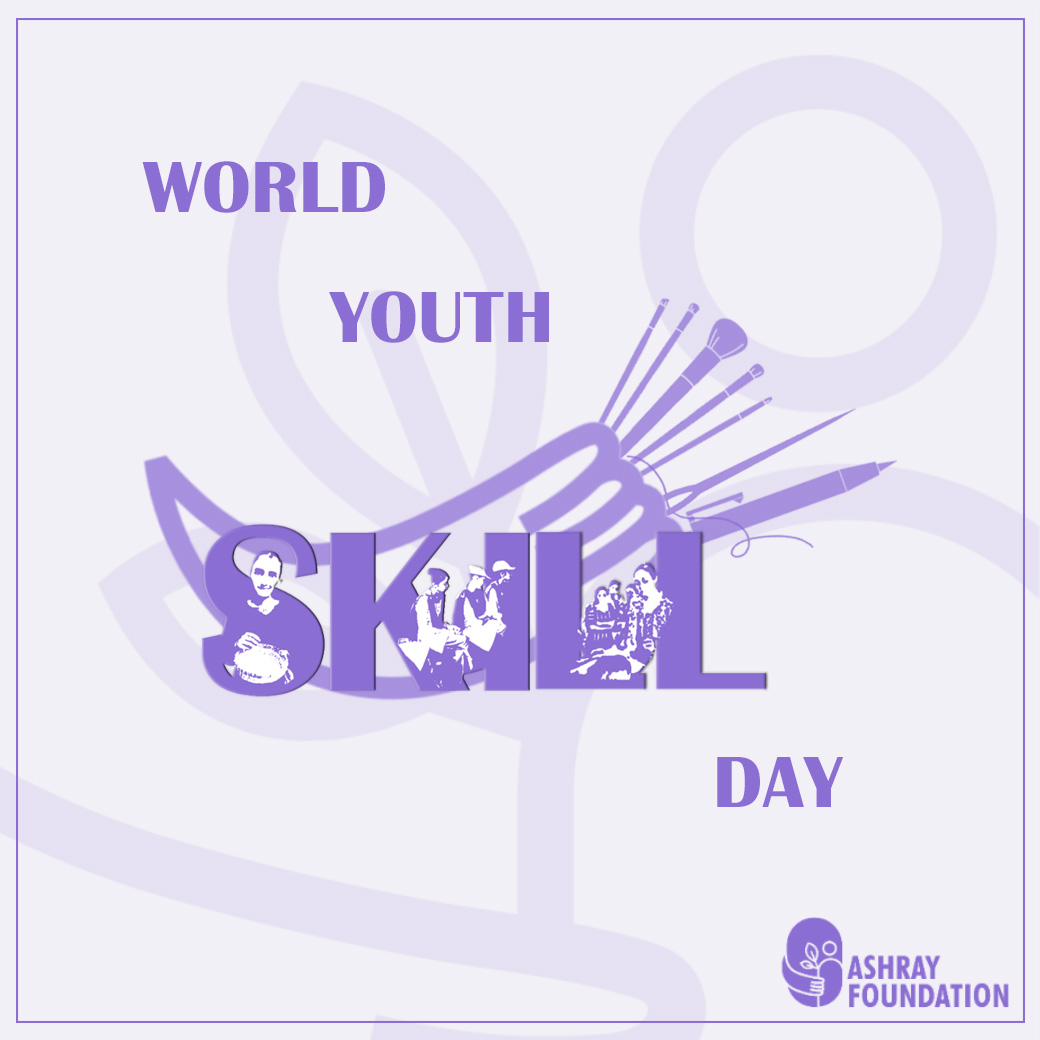BREAKING THE GLASS CEILING – YOUTH SKILLS FOR PEACE AND DEVELOPMENT

Calling in the youth to harbour the legacy of peace and development, from one generation to the next
Author: Srushti Sonawane
With nature’s fortunate incitement, as John Updike would attest, the dream of a young Malavath Poorna, an Indian mountaineer, made her dream of becoming the youngest girl to scale the summit of Mount Everest merely at the age of 13, come true, slashing all the lemons life had to hurl at her. The impeding hunger of his nation grew 22-year-old Ankit Kawatra’s appetite to tackle hunger and food wastage in India and founded ‘Feeding India’ to feed millions of the underprivileged, demonstrating how entrepreneurial skills and social responsibility can create substantial social impact. At the age of building toy castles, 7-year-old Licypriya Kangujam chose to build a sustainable ecosystem by taking active efforts at conserving the environment and addressing global forums, including the United Nations. The nexus of all these prodigal talents was not just the possession of the right set of skills but also the drive to surmount all barriers that came their way. Armed not only with ambition but with skills honed through dedication and opportunity, they stood ready to defy odds and dismantle barriers. In 2014, the United Nations General Assembly designated July 15 as World Youth Skills Day to recognize the crucial role of imparting such young people with skills for employment, decent work, entrepreneurship, and tackling global challenges while promoting sustainable development. In the spirit of World Youth Skills Day, Ashray Foundation upholds the theme of ‘Youth skills for peace and development ‘by exploring the way forward with stories of empowering youth for sustainable development, transformation, and the boundless potential of the next generation.
TALKING TURKEY: YOUTH AND SKILLS IN A NUTSHELL
Young people, who make up 15.5% of the global population, have time and again proved their mettle through their path-breaking innovations towards simplifying the daunting tasks of the diurnal routine. They are more connected and technologically savvy than ever, opening up a world of skill development and entrepreneurship. But sadly, the numbers say that about 21.8% of young people fall into the category of not in education, employment, or training (NEET) globally. Alarmingly, over one-fifth of the young populace is neither in education, employment, nor training, revealing a troubling trend of disengagement. They face significant challenges in the labour market, with youth three times more likely to be unemployed than adults. Gender disparities compound these issues, as young women globally experience unemployment rates up to 1.5 times higher than young men. Currently, nearly 68 million young people are actively seeking job opportunities, underscoring the critical need for targeted interventions and inclusive policies to address these challenges and promote youth economic empowerment. In an attempt to combat the same, an initiative like UNEVOC’s Technical and Vocational Education (TVET) is recognized as a pathway to enhance job prospects for migrants, disadvantaged youth, and marginalized communities. Despite their potential, these groups often face substantial hurdles in accessing high-quality skills training programs. It is therefore an effective tool for youth economic development, yet it has a long way to go. In light of green skill development with the theme “Youth Skills for Peace and Development,” UNESCO UNEVOC attests that the youth are significantly affected by the lack of exposure to green skills essential for building a sustainable ecosystem. While 1 in 6 men qualifies as green talent, a staggering 9 in 10 women lack a single green skill, highlighting a substantial gender gap. Furthermore, 70% of young people feel they lack sufficient space to express themselves in public debates, and 83% believe humanity has failed to care for the planet. With 70% of youth very worried about climate change and 7 out of 10 eager to pursue green careers, they face barriers such as ambiguous career pathways, inadequate green skills education, and misinformation. Despite 60 of the 169 SDG targets explicitly or implicitly mentioning young people, only 1 in 3 feel completely prepared by their education to address climate change impacts, underscoring the urgent need for green skills education. The curse of unemployment is a dangling sword on the heads of today’s youth, beyond their educational qualification; hence, it is of paramount importance today that we underscore the words of UN Secretary-General António Guterres: “Today, and every day, let’s work to transform education. And let’s ensure that youth have what they need to build skills for shaping a more peaceful, sustainable future for all.”
PROGRESS THROUGH PROWESS- ASHRAY FOUNDATION’S SAGA TOWARDS SKILLING
As the saying goes, “Teach a man to fish, and you feed him for a lifetime.” We take this to heart, not just imparting training but actively helping our rural and underprivileged allies seize opportunities, especially for youth skill development. Targeting SDG 4 and SDG 8, our cross-disciplinary approach fosters strong connections towards creating pathways to success, whether through artisan cards that uplift skilled craftsmen, cooperative setups, and entrepreneurial support for rural women that empowers them.
We believe in lighting the way for youth, guiding them toward a sustainable future by empowering them with practical vocational training at Ashray Foundation. Through innovative initiatives like DDUGKY, PMKVY, Beauty and Wellness, and Project Cheer Urja, we don’t just teach skills—we craft futures. In Project Cheer Urja, for example, our beneficiaries transform pine needles into beautiful wall hangings, tea coasters, and baskets and create homemade delights like apple jam, mixed pickles, and herbal soaps. While Project Cheer Urja emphasizes uplifting the rural demographic towards their artistic pursuits, DDUGKY and PMKVY focuses on empowering youth with valuable skills for better employment opportunities. DDUGKY targets rural youth, offering extensive training and job placement support, while PMKVY provides short-term skill training across various sectors, fostering employability and entrepreneurship. Likewise, our Beauty and Wellness initiative imparts vocational cosmetology skills and offers yoga sessions to female beneficiaries, striking a balance between peace and development.
Whether it’s a young Kiran from Gujrat who now takes up home service jobs based on her cosmetology skills and immense hard work, a determined Asmita who successfully secured a job at a BPO company after completing her vocational training, or a passionate Anjali hailing from the humble village of Nau, Mandi, who is inspired to create designer artefacts while preserving natural resources, transforming discarded materials into functional art, all while taking up full-time education, the skilled youth of Ashray Foundation are always on the run to inspire us and keep moving forward in this direction of progress through prowess.
Read more about our wellness initiative here.
CALLING IN THE YOUTH OF TODAY AND TOMORROW
Upholding the spirit of “Ulysses” by Alfred Lord Tennyson, “To strive, to seek, to find, and not to yield,” we must thus ensure that even the stormiest nights have a shore to look forward to. Given the fact that by 2030, the global population is expected to reach 8.6 billion, with the youth themselves comprising around 1.3 billion, it’s thus going to get more challenging to secure employment based on a viable skill set for the budding youth. Notwithstanding the challenges faced by them even today, the future might have a looming cloud of pervasive unemployment, underemployment, and longer school-to-work transitions. These challenges would be the result of a lack of adequate professional opportunities for young people and increasingly skewed skill imbalances, i.e., shortages, surpluses, and mismatches of skills acquired versus those demanded by the world of work. To cope with evolving skill demands, various initiatives globally are playing their part in creating new learning pathways, setting up innovative initiatives and programs, and developing new partnerships. UNEVOC reiterates the importance of skill development for youth through the following key messages:
- Be open to new ideas and dare to ask questions that no one has asked yet.
- Take advantage of the opportunities available in skills development—”Jitume,” meaning “send yourself.”
- Ensure that you are skilled to do the jobs that exist today.
- Embrace lifelong learning.
One can thus conclude that responsive skills development programs must align with job market demands and cultivate transversal skills, enabling youth to adapt to evolving industry needs. Ashray Foundation, hence, inspires people to explore how the importance of skill development in youth can pave the way for peace and development, encourage the youth towards learning and developing skills with practical applicability, and promise a future that has a place for all. Our initiatives serve as more than just stepping stones; they lay the foundation for a prosperous future for our youth and sustainable development. By fostering youth development through adopting life skills for life and promoting sustainable choices, we aim to protect the environment and propel our communities forward. Humming to the tunes of John Lennon, let’s remember that we all are dreamers here and must imagine a world full of hope as he would say, “You may say I’m a dreamer, but I’m not the only one. I hope someday you’ll join us, and the world will live as one.”
